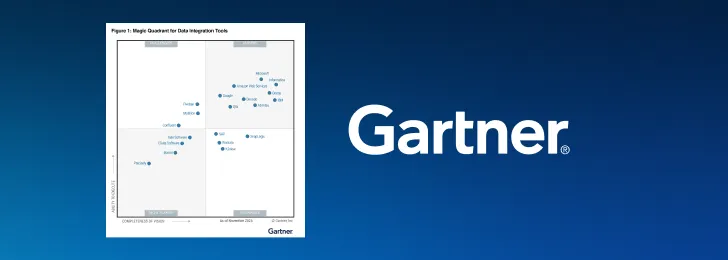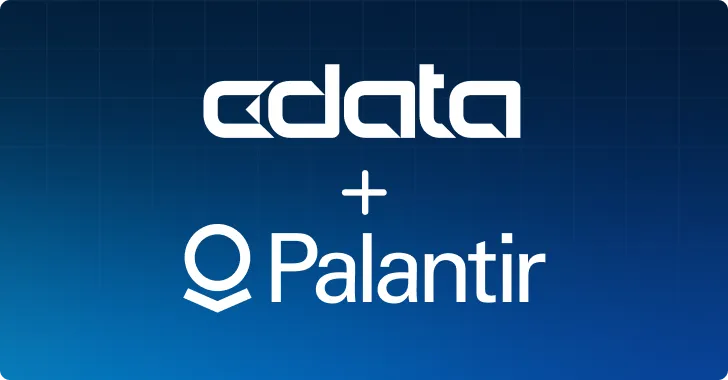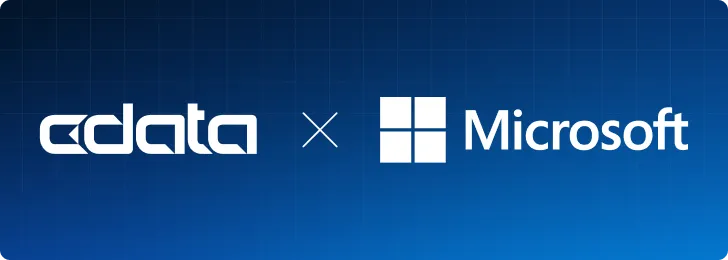
Data lakes provide organizations with a single repository for all their data, both structured and unstructured. Organizations can replicate, move, and store their data from multiple sources in a data lake, data warehouse, or database using data integration. By consolidating enterprise data into a single location, organizations can provide simplified access to their key stakeholders, allowing them to gain a comprehensive, 360-degree view of their organization.
In this article, we present some of the top benefits and drawbacks of using data lakes in your organization’s data architecture, showcasing the versatility of their real-world use cases that drive impactful results in the industry.
What is a data lake?
A data lake stores raw data, including unstructured data, for data processing and analysis. Unlike a data warehouse, it supports SQL queries and integrates with databases to derive business value from diverse data sources.
Learn more about a data lake here.
7 Benefits of a data lake
Data lakes offer numerous benefits, including:
1. Data lakes can handle growing data volumes effortlessly
Data lakes are designed to scale horizontally, allowing them to handle massive amounts of data without performance degradation. This makes them ideal for storing and managing big data.
2. Data lakes undertake various data formats and structures
Data lakes can store data in its raw form, whether structured, semi-structured, or unstructured. This flexibility allows for the ingestion of data from various sources without the need for transformation.
3. Data lakes consolidate data for insightful analysis
By consolidating data from multiple sources, data lakes enable detailed analysis. This unified view helps in deriving valuable business insights and supports advanced analytics.
4. Data lakes provide big data storage capabilities
Data lakes provide extensive storage capabilities, making them suitable for big data applications. They can store vast amounts of raw data, which can be processed and analyzed as needed.
5. Data lakes eliminate data silos
Data lakes break down data silos by integrating data from different departments and sources into a single repository. This enhances data accessibility and collaboration across the organization.
6. Data lakes support advanced analytics and machine learning
Data lakes support advanced analytics and machine learning by providing a centralized repository for data scientists to access and analyze large datasets. This facilitates the development of predictive models and other data-driven applications.
7. Data lakes offer cost-effective solutions
Data lakes offer a cost-effective solution for data storage and processing. They leverage commodity hardware and open-source technologies, reducing the overall cost compared to traditional data warehouses.
Learn about the differences between a data lake and a data warehouse.
7 Disadvantages of a data lake
While largely beneficial, data lakes also come with their own set of disadvantages:
1. Difficulty integrating data with analytics tools
Integrating data lakes with analytics tools can be challenging due to the diverse formats and structures of raw data. Unlike a data warehouse, which is optimized for SQL queries and structured data, data lakes often require additional data processing and transformation to make the data usable for analytics.
2. High initial and maintenance costs
Setting up a data lake involves significant initial investment in infrastructure and architecture. Additionally, ongoing maintenance costs can be high, especially when dealing with large volumes of unstructured data. This can impact the overall business value derived from the data lake.
3. Potential security breaches
Data lakes, due to their vast and varied data sources, can be vulnerable to security breaches. Ensuring robust security measures and compliance with data protection regulations is crucial but can be complex and resource-intensive.
4. Complexity in managing metadata
Managing metadata in a data lake can be complex. Without proper metadata management, it becomes difficult to track and organize the stored data, leading to challenges in data access and utilization. This can hinder the efficiency of data scientists and other users who rely on accurate metadata for their analyses.
5. Data governance issues
Without proper metadata management and governance, data lakes can become disorganized, leading to data swamps. This makes it difficult for data scientists to find and use relevant data, reducing overall efficiency.
6. Complexity in data processing
Handling diverse data formats and ensuring efficient data processing can be complex. The lack of standardized SQL queries for unstructured data adds to the complexity, making it harder to derive insights.
7. Performance issues
Real-time data access and streaming can be challenging in data lakes due to the sheer volume and variety of data. This can lead to performance bottlenecks, affecting the speed and efficiency of big queries and other data-intensive tasks.
4 Data lake use cases
Data Lake is versatile in its applications. Here are a few examples of what you can accomplish with the data storage solution.
1. Data warehousing and integration
Data lakes serve as a complementary solution to traditional data warehouses by storing vast amounts of raw data from various data sources. Unlike data warehouses, which require structured data and predefined schemas, data lakes can handle unstructured, semi-structured, and structured data. This flexibility allows organizations to store data in its original format, making it easier for data scientists to perform big query analyses and derive business value from diverse datasets.
2. Advanced analytics and machine learning
Data lakes provide a centralized repository for storing raw data, which is essential for advanced analytics and machine learning. Data scientists can access and analyze large volumes of unstructured and structured data without worrying about predefined schemas. This capability enhances data processing and enables the development of predictive models and algorithms that drive business applications. The architecture of data lakes supports the integration of various data processing tools and SQL-based queries, facilitating efficient data analysis.
3. Real-time data processing and streaming
Data lakes are designed to handle real-time data streams, making them ideal for applications that require immediate data processing and analysis. By ingesting data from multiple sources in real time, data lakes enable organizations to monitor and respond to events as they happen. This capability is crucial for industries such as finance, healthcare, and e-commerce, where timely data access and processing can lead to significant business value. The ability to store and process streaming data in its raw format allows for more flexible and dynamic data analysis.
4. Enhanced data access and collaboration
Data lakes facilitate improved data access and collaboration across different departments and teams. By providing a centralized repository for storing diverse datasets, data lakes enable data scientists, analysts, and business users to access and analyze data without the constraints of traditional databases. Using metadata and schema-on-read approaches allows for more flexible data exploration and analysis. This collaborative environment fosters innovation and helps organizations derive greater business value from their data assets.
Learn about the differences between a data lake and data fabric.
The best data lake software for your needs
CData Sync facilitates seamless interaction with Data Lakes by enabling the integration of raw data from various data sources into a centralized repository. Unlike traditional data warehouses, it supports unstructured data and diverse formats, enhancing data processing capabilities. CData Sync’s architecture allows for real-time data access and streaming, making it ideal for business applications requiring immediate insights. It also supports SQL-based queries, enabling data scientists to perform big queries and derive business value. The inclusion of metadata ensures efficient data management and schema flexibility, setting it apart from other solutions.
Are you ready to start your data journey? Join our CData Community and learn from experienced CData users, gain insights, and get the latest updates. Join us today!
Connect to Azure Data Lake today
Try CData Sync free for 30 days and connect all your data with Azure Data Lake.





